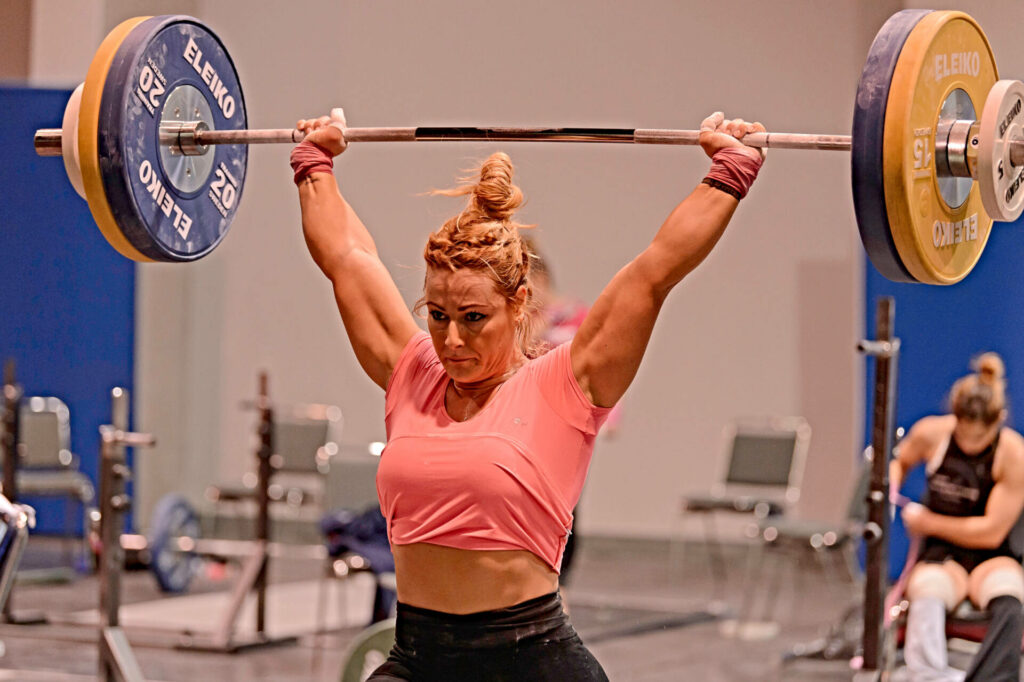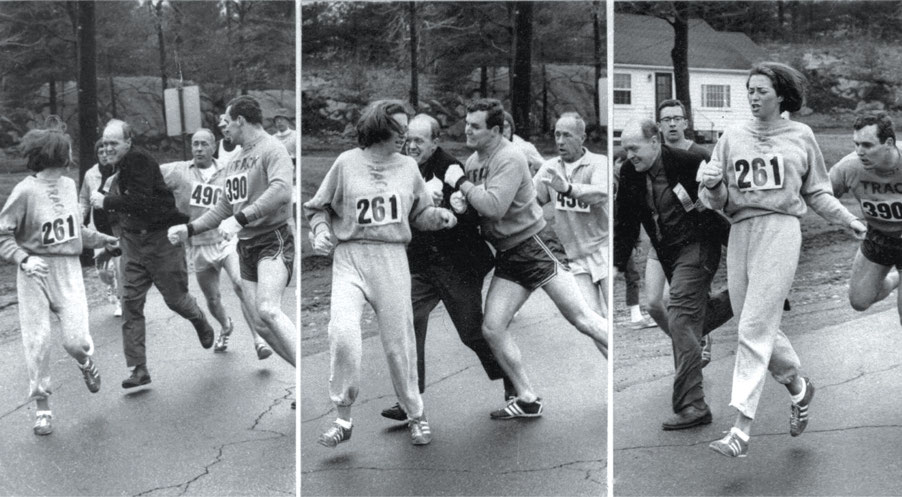STRENGTH SENSEI BOOKSHELF
Strong Like Her
A tribute to inspirational women who changed the game in athletics
Women were not allowed to compete when the Olympic Games were first contested in Ancient Greece. Just sit down, watch the men show what their muscles can do, and cheer them on. To borrow from a famous cigarette slogan, “You’ve Come a Long Way, Baby!”
Strong Like Her is a celebration of strong female athletes. It’s packed with inspirational stories of female Iron Game athletes for sure, but it goes beyond just women who pump iron. Author Haley Shapley showcases, among many others, a circus performer, an ultramarathoner, a swimmer, a fencer, and even a ballet dancer.


The struggle for women to dispel the myths about their participation in athletics was long. Women had to wait until 1928 before being allowed to participate in gymnastics and track and field in the Olympic Games.
The longest women’s event in those Games was the 800 meters, won by Lina Radke of Germany. However, because several of these women collapsed in exhaustion (as men often do), the 800 meters was withdrawn from the Olympics and not reinstated until 32 years later. It wasn’t until 1972 that the Olympic Games organizers saw it “safe” for women to run the 1,500.
The book’s subtitle is “A Celebration of Rule Breakers, History Makers, and Unstoppable Athletes.” One female athlete Haley says who represents all those characteristics was Kathrine Switzer.
Kathrine Switzer became the first female to run the Boston Marathon in 1967. Nothing in the rules said women couldn’t compete, but the officials did not realize that Switzer was a woman because on her entry form, she signed up as “K.V. Switzer.” There was nothing sneaky about this signature. Switzer always signed her name this way because her career goal was to be a sportswriter, and many famous sports writers used the initials of their first two names in their bylines, such as T. S. Eliot.
During the race, Jock Semple, an official, tried to push Switzer off the course and rip off her race number while yelling, “Give me those numbers and get the hell out of my race!” The sequence photos of this event made national headlines.

Strong Like Her is 272 pages and reads like a historical novel. However, those who pump iron may want to jump to “Chapter 8: A Women’s Place is in the Weight Room: The Rise of Strength Sports in the ’70s.” Among the pioneering Iron Game women featured in this chapter are Karen Marshall and Jan Todd, wife of powerlifting legend Terry Todd.
Marshall (then Tarter) was the first woman to clean and jerk 300 pounds and the first US woman to win a world championship. Weightlifting’s not just about your physical strength,” Marshall told Haley. It’s a mental game—to push through something that’s really hard, then to have the mindset that just because it’s hard doesn’t mean you can’t do it, and not to be afraid of it.” And Haley goes beyond the numbers, such as describing Marshall’s battle with Stage 2 breast cancer in 2011.
Todd is the first woman to squat and deadlift 400 pounds officially, and squat 500 pounds. Todd earned a Ph.D. and became a historian of the Iron Game. She said this in 1979, which appropriately sums up the premise of Haley’s book, “Strength should be an attribute of all humanity. It’s not a gift that belongs solely to the male of the species.”
Strong Like Her is a must-have inspirational and empowering book for all women who want to, as the recruiting slogan of the US Army says, “Be All You Can Be.” (TSS)
[Strong Like Her by Haley Shapley is available in hardcover, Kindle, and audiobook formats through Amazon.com.)
